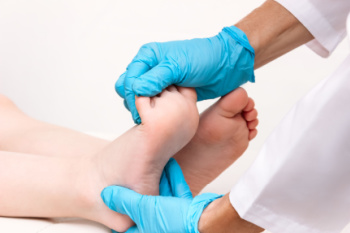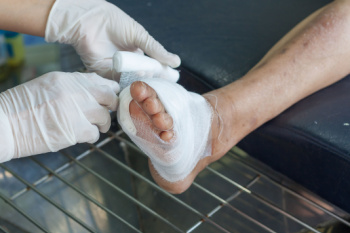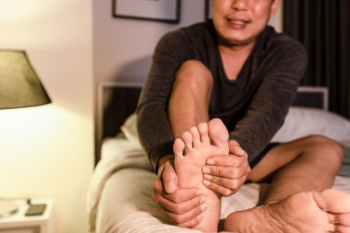
The Achilles tendon is the strong band of tissue that connects the calf muscles to the heel bone, allowing you to walk, run, and jump. Overuse, sudden increases in activity, or poor footwear can lead to Achilles tendinopathy, a condition marked by stiffness, swelling, and pain at the back of the ankle. In more severe cases, the tendon may partially or completely tear, often causing sudden, sharp pain and difficulty walking. These injuries are more common in active adults, but can happen to anyone, especially during activities that involve explosive movements. Prompt evaluation is important, as untreated tendon problems can lead to chronic pain or reduced mobility. Treatment may include rest, targeted exercises, supportive footwear, or surgery for a rupture. If you experience persistent heel or ankle pain, it is suggested that you see a podiatrist for an accurate diagnosis and effective treatment.
Achilles tendon injuries need immediate attention to avoid future complications. If you have any concerns, contact one of our podiatrists of Associates in Podiatry, PC. Our doctors can provide the care you need to keep you pain-free and on your feet.
What Is the Achilles Tendon?
The Achilles tendon is a tendon that connects the lower leg muscles and calf to the heel of the foot. It is the strongest tendon in the human body and is essential for making movement possible. Because this tendon is such an integral part of the body, any injuries to it can create immense difficulties and should immediately be presented to a doctor.
What Are the Symptoms of an Achilles Tendon Injury?
There are various types of injuries that can affect the Achilles tendon. The two most common injuries are Achilles tendinitis and ruptures of the tendon.
Achilles Tendinitis Symptoms
- Inflammation
- Dull to severe pain
- Increased blood flow to the tendon
- Thickening of the tendon
Rupture Symptoms
- Extreme pain and swelling in the foot
- Total immobility
Treatment and Prevention
Achilles tendon injuries are diagnosed by a thorough physical evaluation, which can include an MRI. Treatment involves rest, physical therapy, and in some cases, surgery. However, various preventative measures can be taken to avoid these injuries, such as:
- Thorough stretching of the tendon before and after exercise
- Strengthening exercises like calf raises, squats, leg curls, leg extensions, leg raises, lunges, and leg presses
If you have any questions please feel free to contact our offices located in Pittsburgh-South Hills, and Pittsburgh-Bellevue, PA . We offer the newest diagnostic tools and technology to treat your foot and ankle needs.




